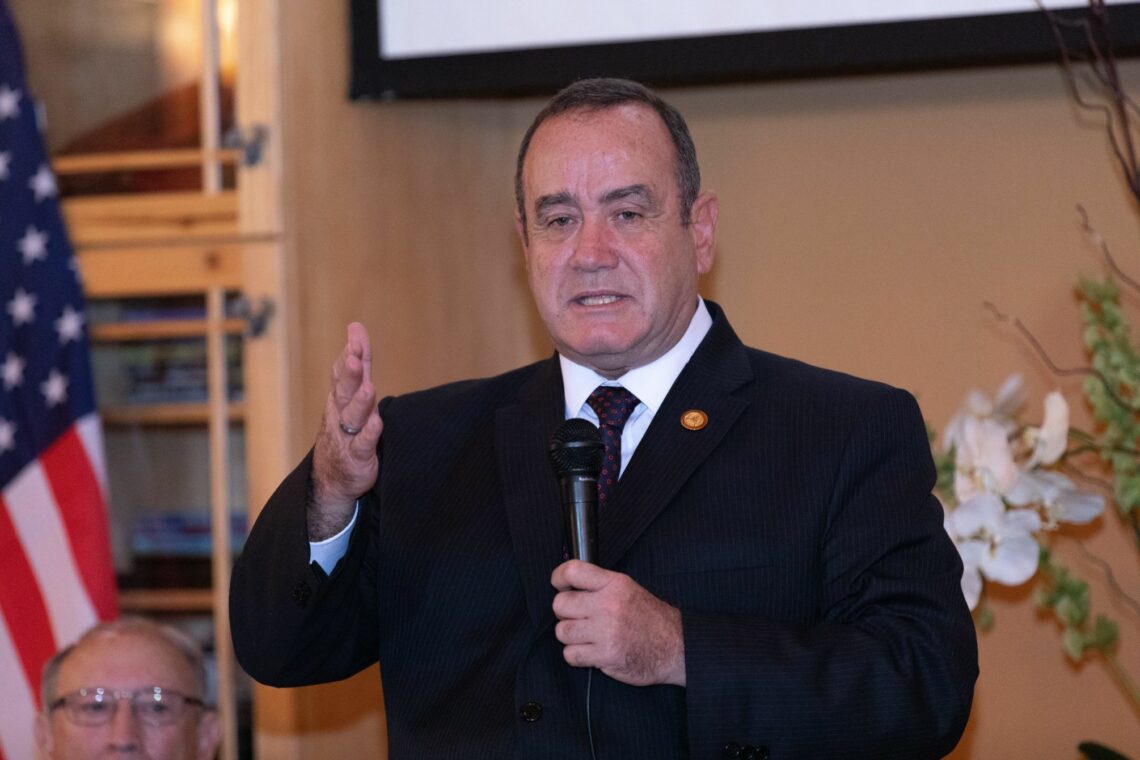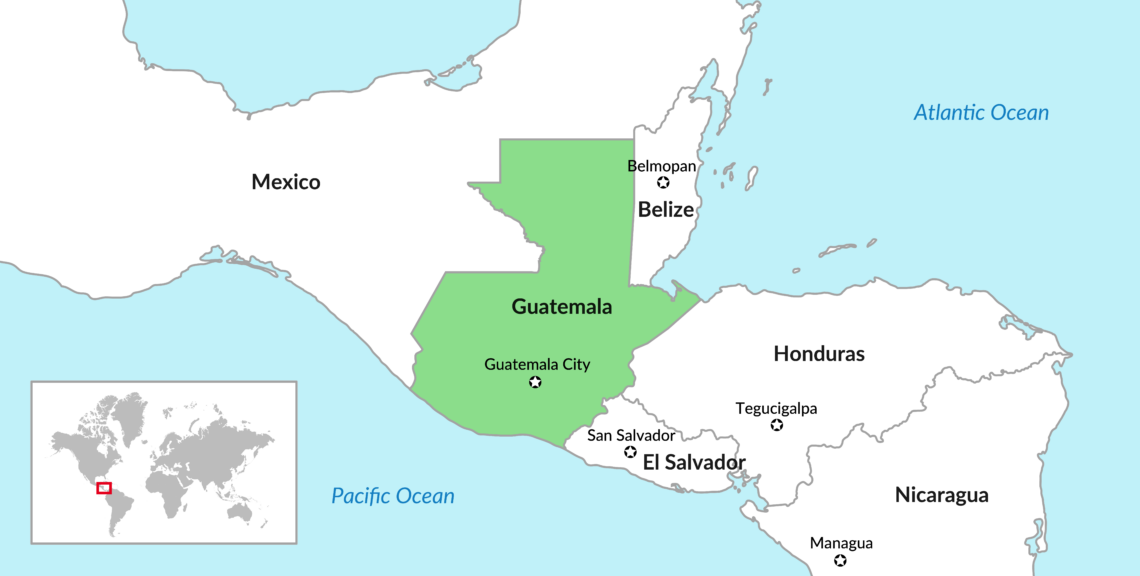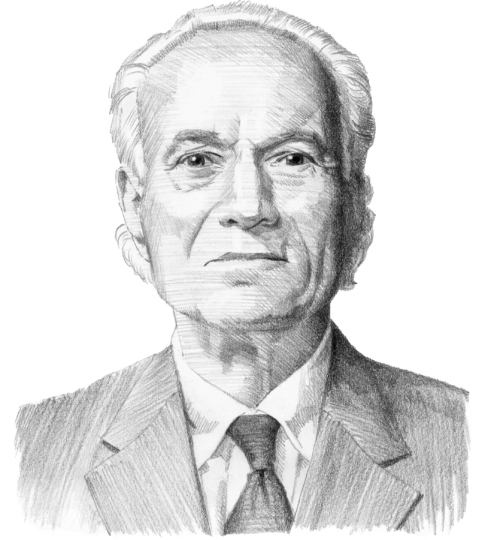Guatemala’s leadership change could bring more instability
In August, Guatemalans elected a new president, Alejandro Giammattei, who promises to expel an international anti-corruption commission. He also wants to renegotiate a deal with Washington that could see thousands of migrants seeking asylum in the country. Both issues could prove explosive for the new leadership of Guatemala.

In a nutshell
- Alejandro Giammattei plans to expel an anti-corruption group
- He wants to renegotiate a migration deal with Donald Trump
- Mishandling either of these could destabilize Guatemala
To understand migration, one must examine both the “push” and “pull” factors – that is, what attracts people to the place they are going and what drives them to leave their homes. In the case of Guatemala, as we explained in a previous report, the principal push factors are economic disadvantages, discrimination against the indigenous majority and widespread corruption among those who govern the country. Compared to their lives in Guatemala, the expectation of what might await them is a powerful pull factor.
In August, fewer than half of the country’s eligible voters went to the polls in the second round of the presidential election, won by Alejandro Giammattei. This voter apathy can be partially explained by the Constitutional Court’s removal of two anti-corruption candidates from the ballot. Guatemalans found the remaining two candidates uninspiring. President-elect Giammattei, the former director of the Guatemalan penitentiary system, is a conservative who has pledged to take a tough stance on crime. Other than that, little about him is known. One might therefore expect more of the same in Guatemalan politics. However, there are two indications that things will not remain the same and could, in fact, become unstable very quickly.
Volatile situations
First, Mr. Giammattei has indicated he will carry out the decision by the incumbent president, James Ernesto (“Jimmy”) Morales Cabrera, to end the contract with the United Nations-sponsored International Commission against Impunity in Guatemala, known by its Spanish acronym, CICIG. That contract ends in November. Second, he has indicated he will renegotiate the deal that President Morales signed with the United States, which essentially forces some Central American migrants to seek asylum in Guatemala before they can request asylum in the U.S. Both of these decisions could lead to volatile situations that the new president may not be able to handle.
The commission’s initial goal was to root out endemic corruption within the Guatemalan government.
CICIG was created in 2006 as a part of the process to end Guatemala’s 30 years of violent internal conflict. The process began with a peace treaty signed in 1996 under international auspices. The commission’s initial goal was to root out endemic corruption within the government. At the time, military officers had been placed in each government ministry to siphon off funds for secret operations against those who were considered a threat or subversive.
Ousting the CICIG
In its first years of operation, the CICIG served principally as a ready band of prosecutors and investigators to help a willing but weak justice system cleanse the criminal elements from the government. The results of its labors were remarkable. In its first decade, crime rates in Guatemala declined and the homicide rate, an indicator of social violence in the country, fell by 50 percent. During that same period, per capita income increased by nearly 15 percent (on the basis of purchasing power parity) and poverty declined.
Beginning just over five years ago, however, the CICIG turned its attention to corruption in politics and implicated the president at the time, Otto Perez Molina, and his vice president, Roxana Baldetti. The latter is in prison, while the former is in jail awaiting sentencing. Then, CICIG tried to indict President Morales on campaign finance fraud, but the congress would not lift his immunity from prosecution. Since then, President Morales and his allies in the congress have determined that they want the CICIG out of the country.
Facts & figures
Guatemala: Uncertain future

Now, with Mr. Giammattei as president, it looks like the CICIG will indeed be forced to leave. Ousting the organization will be a setback not only for those trying to fight corruption in Guatemala, but also for those who have taken it as a model for the rest of Central America. The new president of El Salvador, Nayib Bukele, recently announced that he would create a commission modeled after the CICIG. In Honduras, the Organization of American States (OAS) has sponsored a CICIG look-alike called MACCIH that is struggling to make headway.
The work of the CICIG has elicited significant public reaction in Guatemala before. Getting rid of it could easily provoke mass demonstrations in the streets of Guatemala City.
Outside influence
In all these instances, the role of outside actors has been crucial in encouraging the struggle against corruption and in buttressing weak local institutions. In the case of Guatemala, the commission was the brainchild of the UN, and quickly won the enthusiastic support of the U.S. government, which now provides the bulk of its financing. The same is true in Honduras, where the OAS was the inspiration and the U.S. the financial backer.
One of the Trump administration’s top priorities is reducing migration from Central America to the U.S.
Now, U.S. support is in question in both countries. One of the Trump administration’s top priorities is reducing migration from Central America to the U.S. President Morales agreed to sign the deal with Washington as part of his campaign to get rid of the CICIG. With the U.S. indifferent, it is unlikely that either the UN, the OAS or any other external body will step in to save the commission.
Without CICIG, it is more likely that the rule of law in Guatemala will weaken significantly, allowing for a small economic and political elite to do as they please. Recent investigations by foreign journalists have uncovered a corrupt adoption business based in Guatemala City that smuggles babies from all over Central America and Mexico to Europe and the U.S. without documenting how those infants were made available for adoption.
Now, President-elect Giammattei wants to renegotiate the deal with Washington. At face value, the agreement is laughable. The office in Guatemala City that deals with visa and asylum requests has a staff of three and handles an average of 15 cases per week. How will the Guatemalan government take on some 10,000 cases per week, mainly concerning people from Honduras and El Salvador? It is easy to envision the center of Guatemala City becoming a vast detention camp.
We shall soon see if President-elect Giammattei’s promised renegotiation can yield substantive results. The U.S. president has a possible solution at hand, though he may not know it. Several decades ago, Washington decided to create “smart ports” in places like Buenos Aires and Porto Alegre, Brazil. The U.S. sent teams of customs officers to these locations to aid authorities in examining cargoes destined for American ports, thereby reducing clearance time upon arrival in the U.S. Perhaps President Trump will do something similar to help the Guatemalans deal with the flood of asylum seekers headed for the U.S. through their country.








